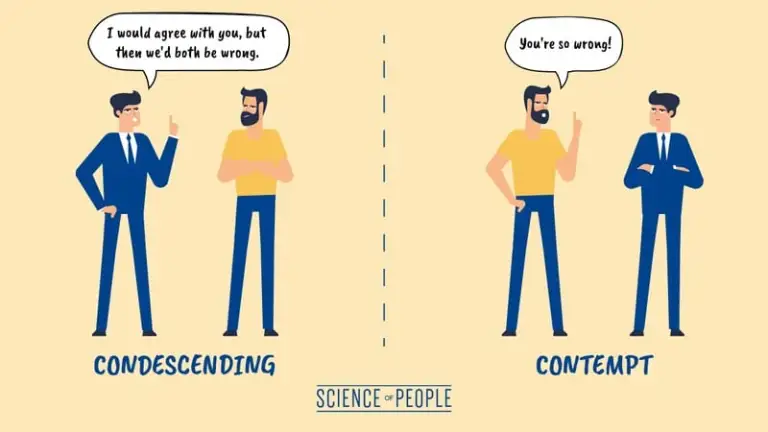How To Respond When Someone Is Condescending

Imagine you're sharing an idea in a meeting, enthusiasm bubbling in your voice. Suddenly, a colleague interjects, their tone dripping with a patronizing sweetness, "That's… cute, but have you considered the actual budget constraints?" The air thickens. Your cheeks flush. The room seems to shrink. In that instant, you’re faced with a choice: shrink under the weight of their condescension or rise above it.
Navigating condescension is a universal skill, whether it arises in the workplace, within families, or among friends. This article explores how to respond to condescending behavior with grace, assertiveness, and a focus on maintaining your own self-respect. We'll delve into understanding the roots of condescension and offer practical strategies to defuse such situations effectively.
Understanding Condescension
Condescending behavior often stems from insecurity, a need for control, or simply a lack of self-awareness. According to Dr. Susan Fiske, a social psychologist at Princeton University, these behaviors can be deeply ingrained and subconscious. It is not always a deliberate attempt to belittle someone, but rather a manifestation of their own internal struggles.
Recognizing the root cause helps in choosing an appropriate response. It's less about attacking the person and more about addressing the behavior. Understanding this allows you to detach emotionally and formulate a rational reply.
Strategies for Responding
Acknowledge and Reframe
One effective technique is to acknowledge the statement without internalizing the condescending tone. For instance, if someone says, "Well, that's a naive perspective," you could respond, "Thank you for pointing that out; I appreciate you highlighting the need to consider different perspectives."
This reframes the conversation. You acknowledge that the statement exist, but do not engage with the negative subtext. It shows confidence and prevents them from getting a reaction.
Directly Address the Behavior
In some cases, a direct approach is necessary. Calmly and assertively address the behavior, focusing on the impact rather than attacking the person. Say something like, "I understand you may disagree, but I'd appreciate it if you could express your concerns without being condescending."
This approach is more assertive. It sets clear boundaries and communicates that their behavior is unacceptable. Remember to maintain a calm tone to avoid escalating the situation.
Ask Clarifying Questions
Turning the tables by asking clarifying questions can expose the weakness in their argument and subtly challenge their condescension. If they say, "You clearly don't understand how this works," respond with, "Could you elaborate on which aspects you believe I'm missing?"
This shifts the focus. They are forced to explain their points in detail and support their claim. It forces them to back up the statement with facts and details.
Set Boundaries and Walk Away
Sometimes, the most empowering response is to disengage. If the condescension is persistent and unproductive, set a boundary. You can say, "I'm not comfortable continuing this conversation if it's going to be condescending," and politely excuse yourself.
Protecting your mental and emotional well-being is paramount. Recognizing when a conversation is going nowhere and removing yourself from it is a powerful act of self-respect.
The Importance of Self-Reflection
Responding to condescension isn't just about what you say or do in the moment. It's also about how you perceive yourself and your worth. Confidence is a key defense against feeling diminished by others.
Practice self-compassion. Remind yourself of your strengths and accomplishments. Don't allow someone else's negativity to define your self-image.
Ultimately, navigating condescension is a journey of self-discovery and empowerment. By understanding its roots, practicing assertive communication, and prioritizing your own self-worth, you can transform challenging interactions into opportunities for growth and resilience.





:max_bytes(150000):strip_icc()/GettyImages-1454367444-a7d5bb6c1b2f485c94303c6d5c9525f0.jpg)












